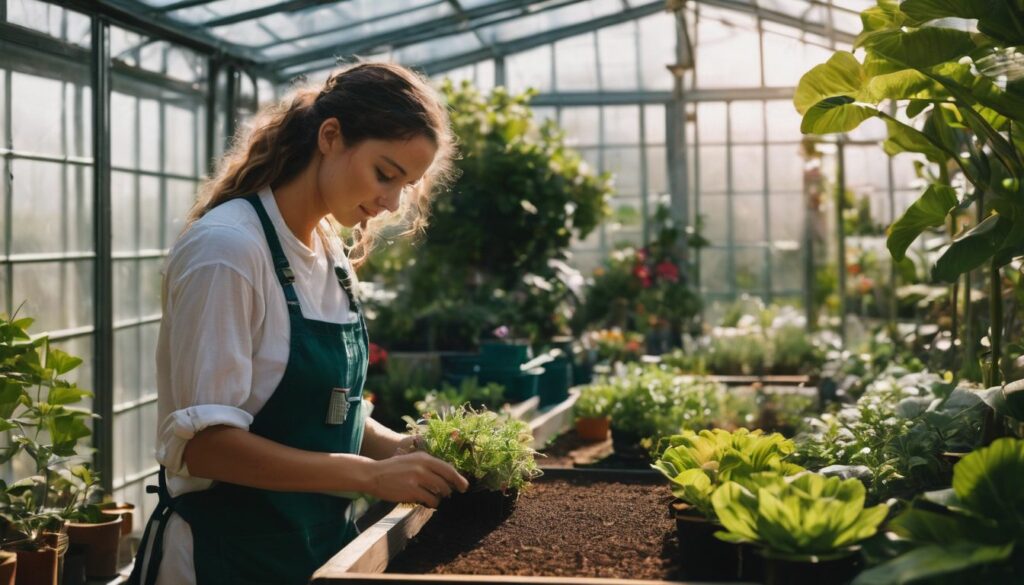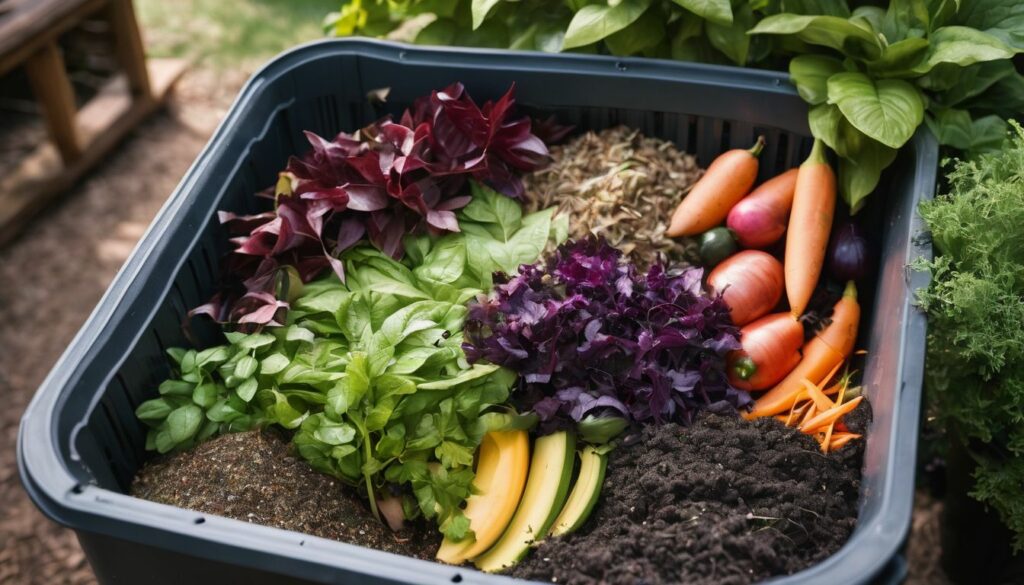Woohoo, you’ve done it! You have found the perfect WWOOFing host. Your family has been convinced that you are OK. Now you plan to travel to your new home over the next few weeks, or months. Now comes the fun part: packing. One of the most crucial steps in preparation for WWOOFing is knowing what to bring. Too many people get too excited and forget some very important things. The title of this post is not intended to offend anyone. We all forget things. Here’s a list of items you will likely forget. You should make sure you pack the most important things first. You might be asking what is WWOOFing?
WWOOFing is an acronym for “World Wide Opportunities on Organic Farms.” It allows volunteers to visit organic farms and learn about sustainable agriculture. You don’t need to pay for lodging or board during your stay at the farm. This is not a program for monetary exchange.
WWOOF is an educational program that allows WWOOFers to discover more about WWOOFing. The program teaches you how to farm and allows you to participate in organic agriculture programs. It also teaches you about the culture. WWOOFing is an international movement. The WWOOF USA(r) Host Farm Directory lists more than 2,000 farms across the country. Agritourism is gaining popularity.

16 Things to Bring to Your WWOOFING
1. Give a gift to your host
You’ve made a great first impression by being accepted on someone’s farm/homestead. You don’t have to be extra hard when you arrive. It’s a great way to show appreciation to your host for their cooperation.
If you’re looking for the perfect gift, check out their WWOOFing profile. You might be able to find clues as to what they like. For example, if you’re going to be working with a beekeeper bring some honey from your own region to give them a taste. Consider buying something for your host if you have traveled internationally before. Many homesteaders don’t travel as often as the average person. Help them to experience something new!
It is important to ensure that your gift adheres to any beliefs or practices your host may have. It’s also a good idea not to eat foods that could trigger a common allergic reaction (e.g., peanuts, soy, etc.). You can find out more here.
2. A Reusable Water Bottle
You will be provided with water by your host for thirsty days at the farm. It’s a good idea to bring your water bottle. Many WWOOFers are on farms all year, so it is unreasonable to expect hosts that they will cover all the cost of reusable bottles.
An insulated water bottle is a good investment if you’re expecting hot weather. Insulated bottles will keep your water cool all day. Hydrapeak bottles are my personal favorite. I have left them out in the sun for hours with the water still cold inside. A large bottle is a must. It is possible to spend hours in the fields, so it is a good idea to have at least 40oz.
Although reusable water bottles, especially insulated ones, are more expensive than plastic counterparts in the long-term, it is worth investing at least $20 to get a bottle you can carry around for many months. You’ll save money over the long-term and you won’t be putting any harmful plastics into the environment.
3. Shoes and Clothes that are not for work
After a long day, you will want to get out of your muddy, sweaty and stained clothes. You probably already have a few comfortable outfits that you can lounge in at the end, but bring something more stylish to wear out. You’ll be invited to local pubs and restaurants by your hosts, so make sure you look professional. You will want to explore the local sights with fellow WWOOFers during your trip.
4. Organic and natural bug spray
Farms cannot be evaded by insects. Insects are everywhere. They can be found in the soil, the soil, the crops and in every part of the farm. This is especially true for organic farms, where no harsh pesticides will be used. It can save your life if you spray bug spray.
Remember that WWOOFing is all based on organic farming when you are looking for a bug spray. Many bug sprays that are readily available in pharmacies do not contain organic ingredients. Many hosts won’t want these chemicals on their premises so it is important to research your options before you buy. Good news is that brands are switching to natural oils over dangerous synthetic ingredients such as DEET and alcohol. The most effective oils for repelling insects are lemongrass, citronella and lavender oils. Sky Organics and Murphy’s are two of my favorite brands.
You could even make your own organic/natural bug spray before you leave!
5. Waterproof boots
You probably don’t know the importance of waterproof boots if you plan to WWOOF in the summer. You absolutely must. Farms can still be quite wet even in scorching summer heat. Watering plants and animals is essential. Construction projects may involve digging foundations below the watershed.
I don’t skimp on footwear and would strongly recommend that you do so. Poor footwear can quickly turn your idyllic WWOOFing experience into a nightmare. Poor footwear can make your trip miserable. Consider lightweight, ventilated, waterproof boots if you are going on holiday in the summer. You will need something stronger with fleece insulation if you are going away during the rainy months.
6. Basic Nail Care Products
Do you hate having your nails dirty but love getting them dirty? As I write this, I am sat down with my hand raised.
You can avoid gritchy-nail situations by having a basic grooming kit that includes a nail clipper and a brush. Many people don’t feel that dirty nails are a problem, especially those who participate in WWOOFing. You must also consider your surroundings. You will be involved in some form of communal cooking as a WWOOFer. And, frankly, nobody wants to eat food that has poor nail hygiene. You can pack a few basic nail tools and be ready to go.
7. Work gloves
There are many reasons why people wear work gloves. It’s sometimes necessary for safety, and sometimes people just want to keep clean (relatively speaking, let’s not pretend). No matter what reason you have, it is wise to bring along a few pairs just in case your host doesn’t provide them.
This is the perfect time to purchase the right gear if you know what type of projects you’ll be working on. You can still use your work gloves for many activities if you don’t have the right tools.
There are many materials that can be used to make work gloves. Unfortunately, it is not easy to find organic or ethical products. Try your best to source high-quality ethical materials wherever you can. If all else fails you can always get gloves from companies who invest in sustainability and are cruelty free.
8. A Head Torch
For me, there’s something strangely satisfying about wearing a head torch. It makes me feel ready for work. My oddity aside, it’s important to have a head torch in your bag when you think about what you will bring WWOOFing.
Farms are always full of tasks, and sometimes the night falls before the day is over. You need to be able to see what you’re doing and have the ability to do things like watering plants, caring for animals in distress, or searching for missing chickens. You can use a rechargeable LED torch to lighten your work. They are more efficient and brighter than traditional flashlights.
9. Sunscreen
Farmworkers are more likely to develop work-related illnesses from the sun than other workers. This is well known. Common symptoms include dizziness, heat exhaustion and nausea. Skin cancer is perhaps the most serious long-term concern. Why is this? Farmworkers often work outside for long hours, often in direct sun.
A healthy glow is nothing to be concerned about. However, it’s important to avoid sunburnt skin. Sunscreen can be applied before going outside, and at regular intervals throughout your day to reduce the chance of sunburns. A higher SPF (sunprotection factor) will be required if you are going to be outdoors. Even if your skin isn’t particularly pale, you should get the best SPF possible. It’s something you will need if you spend hours in the sun.
10. Headgear
The right headgear is also important. You might need to have a few different hats for weather conditions. Gardeners need to have wide-brimmed hats in order to protect themselves from the sun. They are not only protecting their faces. For sunburn prevention, wide-brimmed hats are a must. They protect the back of your neck. They are worn by everyone, so don’t be ashamed if you haven’t. Nobody cares about how you look if you’re covered in manure.
Thermal headgear is essential if you’re WWOOFing during winter months. It is important to bring something to keep your head and body warm. It will not only make you feel more comfortable during the day but will also prevent frostbite or other winter ailments. Organic Merino wool is particularly comfortable so be sure to look out when you shop!
11. Quick Dry Socks and Underwear
Yes, I am going there. Underwear. You won’t be surprised at how many times you will need to change your clothes while WWOOFing. You’ll need to change your socks and underwear, no matter how dirty you are from digging vegetable gardens or how soaked you were when a fellow WWOOFer attacked you with a pipe. It’s a fact of life. You should include it on your list of things to bring WWOOFing.
Quick-dry socks and underwear can help in this area. Quick-drying material will dry faster on the body. It can also dry much quicker if it is washed quickly and dried out outside. There will be plenty of options in sporting clothing shops, but there are often cheaper pieces that are not as technical in department stores and large supermarkets.
12. Small First Aid Kit
Farms are prone to cuts, grazes and scrapes. I have many scars from barbwire, wriggly livestock, and devilish rosebushes. It’s likely that you will suffer the same fate. Therefore, it is worth thinking ahead and making sure to stock up.
You can carry some of these small first aid kits with you, or make your own. You will need antiseptic wipes and several different sizes of bandages. Also, safety pins, sterile eyes dressings, and a pair tweezers. This kit will help you quickly treat minor injuries and will signal to your hosts that it is capable of taking good care of you.
13. Rain jacket lightweight
It doesn’t matter what kind of weather you expect, a lightweight rain jacket you can fold up and put in a bag is a good idea. You will be ready for any unexpected rainstorms in the summer, while the jacket will serve as an additional layer of clothing throughout the year. I prefer to have multiple layers of clothing I can add or remove as needed, over one large coat. This is especially useful on farms, where there are often many temperature changes throughout the day. A lightweight rain jacket is a great piece of gear that you can use quickly and easily.
14. A notebook
Everybody who goes on WWOOFing trips finds them inspiring. A small notebook can be a great way to record your thoughts, ideas and memories along with your daily tasks and farming tips. A lot of WWOOFers are creative people. If you’re a poet or writer, or a general scribbler you can bring a small notebook along to capture the beauty around you.
These are just a few ideas to help you think of what you should write in your WWOOFing journal.
- Recipes
- Instructions for caring for your plants
- animal care tips
- vegetable garden layouts/plans
- Recommendations for other WWOOFing host
- Numbers and email addresses for new friends
- Daily diary entries
- Favorite local restaurants and stores
- List of seeds you should look for in the next season
15. Medical Information
Okay, this is a serious decision to make and one that you should definitely put on your bucket list for WWOOFing.
There is no reason why you shouldn’t WWOOF if you have a medical condition. Many hosts will make accommodations for you. They may be able to help you cook with specific ingredients or assist you with certain tasks. It’s a good idea, however, to be prepared for anything and keep all of your medical information on you in case it happens.
Bracelets with compartments to hold medical information and those with more space for emergency numbers are available. They are used by runners and hikers to ensure they are taken care of in an emergency. Include emergency contact information, any medical conditions, suspected allergies, and a list if you are currently taking medication.
Even if you don’t have any issues, I recommend this. You could be far from home and never know what might happen.
16. Good Attitude!
Last, but not least, you need to bring a good attitude. Like most things, WWOOFING can be a very positive experience if you have the right attitude. However, if you don’t, then you and the people around you will be miserable. Don’t get me wrong, there will be unpleasant stuff, but overall you should learn a lot and have a great experience.
Do You Feel Better About What You Can Bring to WWOOFing?
This list should have provided some comfort in your decision-making about how to bring WWOOFing. Each person will have a different list of essentials, but you should be able to remember or at least consider the items on this list. If you are still having trouble, ask your host for advice. They will likely have lots of experience and can help you figure out what to bring. People who forgot things from the past have come to WWOOFing.
What are your thoughts? Did I miss anything? Please let us know by leaving comments!




